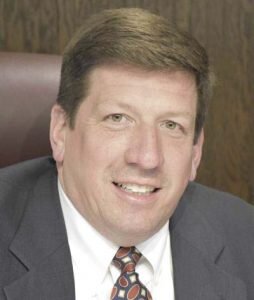By Elizabeth Bonin, Staff Writer
Carozza, Hartman address concerns about classroom environment, home daycare
(Feb. 27, 2020) After a six-and-a-half-hour joint public hearing last Monday, the Blueprint for America’s Future, which is based on the Kirwan Commission recommendations, will move on to committees for possible amendments.

Del. Wayne Hartman
The multi-billion-dollar bill calls for a revamp of public education, including increasing teacher pay, providing free preschool for 3- and 4-year-olds living at 300 percent below the poverty level and strengthening vocational education.
Numerous local officials have voiced concerns about the bill, especially the high cost for Worcester County and the lack of local control.
Worcester County, which is rated as the wealthiest county per capita in the state by Kirwan standards, would have to budget an added $5.3 million for public schools in 2030. The state contribution would grow by $7 million for a combined $12.3 million increase in 2030 school spending for Worcester public schools.
The public hearing involved the Senate Budget and Taxation Committee, the Senate Education, Health and Environmental Affairs Committee, the House Appropriations Committee and the House Ways and Means Committee, with 130 witnesses.
Delegate Wayne Hartman (R-38 C), a member of Ways and Means, said that five hours into the hearing, they hadn’t even heard from the opposition yet.
“The hearing is exactly what I expected — a lot of people passionate about their special interests, whether it’s students with special needs or teachers in the teacher’s union,” Hartman said.
Although local officials and teachers have previously disagreed with the bill, including traveling to Annapolis for a November public hearing, no Worcester representatives attended last week’s hearing.
Worcester County Commissioner Chip Bertino partially attributed this to the hearing being scheduled for 1 p.m. on a holiday, President’s Day. He added that the bill did not have a proper rollout of the timeline.
“It’s very difficult to testify when you don’t know what’s in there,” Bertino said.
The county commissioners did send a letter of opposition to the chairs of the House Appropriations Committee, the House Ways and Means Committee and the Senate Education, Health and Environmental Affairs Committee.
“It helps to have our voice heard, although I doubt very much that it’s going to make a difference,” Bertino said during the commissioner’s meeting on Feb. 18.
The letter’s main point was the financial effects.
“We have concerns regarding how required increases in education funding could impact Worcester County government and taxpayers during slow economic times should the state be unable to fulfill its financial commitment to education funding,” the letter reads. “Furthermore, the bill denies counties the flexibility to meet the Kirwan objectives in ways that make sense to local need and circumstances.”
Hartman said that one of his concerns was home daycares.
“It’s going to be the larger daycare centers and so forth that have a more structured environment with 20 kids in a class for 3-and-4 year-olds where they’re actually going to receive state funding as part of the Kirwan program,” Hartman said, “but yet the home daycares is not going to meet the criteria that’s needed to do that. I have concerns on how that’s going to impact small businesses.”
In a statement, Carozza said she asked questions regarding the fact that Kirwan doesn’t address school learning environment and working conditions, as well as local control over education policy and spending.
“After three years of working on major education reform, there is little in the Kirwan legislation that addresses the challenges of disruptive students nor any serious reforms to improve the student learning environment or classroom and school management for our teachers and school leadership,” Carozza said.
Hartman agreed.
“A lot of college-aged students, when they pick a career, they’re familiar with the salary that’s associated with it, but when they get into the classroom and find out about all the behavioral issues and the lack of control, I think to me, that’s the element that surprises them,” Hartman said. “I think the fact that teachers leave the profession is more related to behavior than pay. Pay only fixes things for a certain amount of time.”
